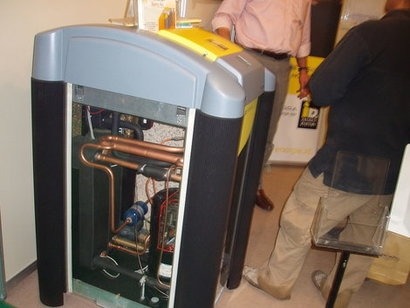
The decarbonisation of the heating and cooling sector is moving to the forefront of the debate on EU’s climate and energy ambitions, with several voices, most notably MEP José Blanco López, Rapporteur on the Renewable Energy Directive, asking for more investments in renewable heating and cooling to stay in line with the targets set by the Paris Agreement. At the EURACTIV event “The Clean Energy Package: Towards a Smart and Sustainable Heat Market”, several views were expressed on how best to achieve this aim.
The European Geothermal Energy Council (EGEC) has now released a policy paper assessing the current European Commission’s energy modelling, used to generate forecasts that serve as a basis for policy proposals and policy making. The resulting analysis shows a lack of robustness in the Commission’s forecasts for the heating and cooling sector, which translates in a lack of ambition, in the initial Commission’s proposal, for the future of the renewable heating and cooling (RES-HC) sector.
Mr Blanco López’s proposal presented in his draft report - calling for increasing the share of renewables in energy supplied for heating and cooling by 2 percentage point per year between 2020 and 2030, as binding measure for Member States - is a welcome improvement that would allow for an accelerated development of the RES-HC sector. Among the new measures introduced by the Rapporteur, there are several flexibility mechanisms that would allow Member States to achieve this ambitious goal in a more cost-efficient way.
EGEC understands the need for flexibility in the decarbonisation of the heating and cooling sector, as local resources – or existing shares of renewable – vary greatly. It believes that Member States with high penetration rates of renewables in heating and cooling should not be overburdened, but should instead focus their efforts on other sectors where they may be more effective. On the other side, the binding provision proposed by the Rapporteur would be an important incentive for Member States where heating and cooling is still dominated by fossil fuels, since heating and cooling is the largest segment of the energy system and its decarbonisation is therefore a fundamental requirement to comply with the Paris Agreement.
Image: A ground source heat pump
For additional information:

